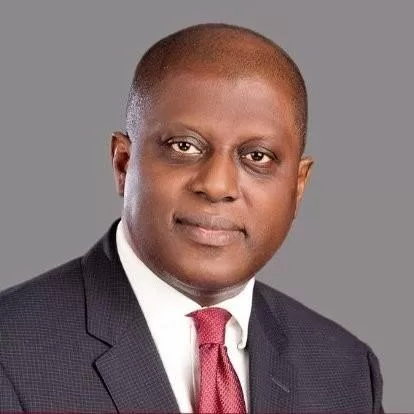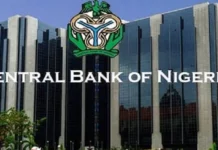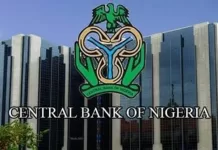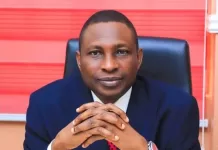President Muhammadu Buhari is seeking to add unpaid $50 billion overdraft from the Central Bank of Nigeria, to the country’s public debt pile.
Despite concerns about the legality of the country’s borrowings, President Buhari has approached the Senate to allow him add the $50 billion overdraft to the nations debt pile with plans to convert 22.7 trillion naira ($50.4 billion) in advances from the Central Bank of Nigeria into bonds that will be repayable over decades.
Read Also: Nigeria’s Inflation Reduced To 23.75% In December – NBS
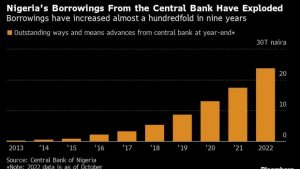
The move would immediately boost the country’s official debt load by more than half, propelling Nigeria’s debt-to-GDP ratio toward the 40% limit set by the administration.
The International Monetary Fund and World Bank already include the central bank loans in their calculations of Nigeria’s debt stock. The overdraft is more than the total debt of Ghana or Bahrain, and more than twice that of Tunisia or Iceland.
The matter will be discussed when Senators resume work on Jan. 17, almost three weeks after the upper chamber suspended a rowdy emergency session to consider the president’s request
Spokesmen for Buhari and the CBN didn’t respond to requests for comment.
The central bank can provide temporary financing to the federal government, but Buhari’s administration has disregarded a law restricting outstanding loans to 5% of the previous year’s budget and mandating that the funding be repaid within the same financial year.
Between the president’s arrival in office in May 2015 and last October, the outstanding balance of so-called “ways and means advances” exploded nearly 30-fold from 790 billion naira to 23.8 trillion naira, according to CBN data.
The senior researcher at BudgIT, Vahyala Kwaga asserts that the “federal government’s accumulation” of the loans “violates the law.”
Advances in the last three years exceeded 100% of the government’s revenue during the preceding years.
A spokesman for Finance Minister Zainab Ahmed said the government had to wait for the passage of legislation in December 2021 before it had “the legal basis for formally repaying” the loans “through securitization.” He didn’t answer a question about whether the overdraft was illegal.
The IMF believes that the Nigerian government will soon run into difficulty raising enough income to service its debts seeing as the Nigeria spent 80% of its revenue on servicing debt last year.
There has been “a complete absence of restraint” by the government and “complicity on the part of the CBN in allowing such activities to go on unchecked,” Kwaga said.
Endorsement of the proposed restructuring “will allow us to have our full debt stock recorded,” Dele Afolabi, director of the portfolio management department at Nigeria’s Debt Management Office, said during a webinar on Jan. 6.
“An overdraft is already on the books, the money is already outstanding,” he said.


